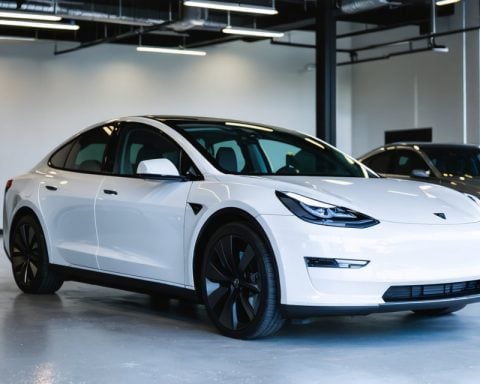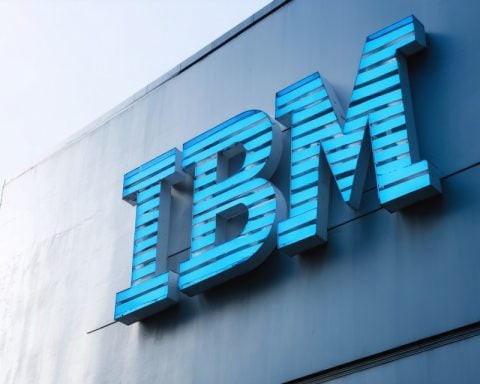- Two key battery plants in Hazel Park and Warren, Metro Detroit, are closing, affecting nearly 200 workers.
- The closures are part of BorgWarner’s strategy to consolidate operations in Seneca, South Carolina.
- These plants were pivotal in Detroit’s electric vehicle industry ambitions and are now emblematic of the region’s industrial transitions.
- The decision impacts the local economy, prompting workers and businesses to adapt quickly.
- Warren’s site was once part of the historic GM’s Warren Transmission Plant, highlighting the area’s rich industrial heritage.
- This change reflects the broader industry trend towards increased efficiency and economic pressures.
- The situation underscores the need for community resilience and adaptability in the face of industrial evolution.
The hum of industry in Metro Detroit dims as two key battery plants prepare to close their doors, leaving nearly 200 workers to seek new avenues. Once the heartland of American automotive innovation, the region faces another blow as Akasol Inc., part of the BorgWarner umbrella, reshuffles its production lines.
Nestled in the industrial tapestry of Hazel Park and Warren, these facilities encapsulated Detroit’s ambition to spearhead the electric vehicle revolution. But soon, the bustling assembly lines will fall silent. By midsummer, BorgWarner intends to consolidate its operations in Seneca, South Carolina, a strategic move to streamline production and outperform market growth. The decision casts a shadow over 188 dedicated employees who fueled this enterprise with their skill and labor.
Warren’s plant, located on a historic automotive landmark at the former GM’s Warren Transmission Plant, and the Hazel Park site, with its own legacy, stand as testaments to the region’s rich industrial past. These closures serve as a stark reminder of an industry in flux, caught between innovation and economic reality.
For the countless families and local businesses entwined with the plants’ fates, the need to adapt is urgent. This shift underlines a broader narrative: the relentless push for efficiency that reshapes landscapes and lives. As Metro Detroit recalibrates, its people brace for transformation, confronting uncertainty with resilience forged in steel’s shadow.
In an age where change is constant, communities must rally together, embracing new opportunities even as old ones fade. The lesson echoes beyond Detroit—a call to balance progress with compassion as industries evolve.
Must-Know Insights from Metro Detroit’s Battery Plant Closures
How-To Steps & Life Hacks: Navigating Job Loss in the Automotive Sector
1. Skill Enhancement:
– Leverage resources like government-sponsored training programs or online courses (e.g., Coursera, Udemy) to upskill or reskill in high-demand areas such as green technology and digital manufacturing.
2. Networking:
– Attend local industry events, join professional groups on LinkedIn, and connect with former colleagues for potential job leads or career advice.
3. Financial Planning:
– Consult financial advisors to reassess budgets. Look into unemployment benefits and potential government assistance programs for recently displaced workers.
Real-World Use Cases: Electric Vehicle (EV) Transition
– Manufacturing Reshoring: Some companies are relocating production back to the U.S. to enhance control over the supply chain and reduce geopolitical risks.
– Eco-Focused Public Transit: Cities investing in electric buses and charging infrastructure illustrate the real-world application of EV advancements.
Market Forecasts & Industry Trends
– EV Market Growth: The global EV market is forecasted to grow from 34 million units in 2020 to 234 million units by 2030. The expansion is partially driven by policy shifts towards sustainability (Source: International Energy Agency).
– BorgWarner Strategy: The consolidation to Seneca reflects a trend where companies streamline for efficiency, reduce costs, and enhance logistical advantages.
Reviews & Comparisons: BorgWarner vs. Competitors
– BorgWarner ranks favorably against competitors like Tesla in drivetrain components but trails in EV battery technology innovation.
– Compared to rivals like BYD and LG Energy Solution, BorgWarner’s strategic manufacturing shifts aim to lower operational overhead.
Controversies & Limitations
– Community Impact: Small businesses dependent on plant employees are strained. Leaders must renew economic vitality through incentives for new business investments.
– Innovation vs. Layoffs: Questions remain about whether efficiency-driven layoffs stifle regional innovation potential.
Features, Specs & Pricing
– Battery Technology: BorgWarner’s battery systems focus on vehicle range and fast-charging capabilities.
– Cost Efficiency: Consolidating operations aims to reduce production costs by up to 15% (Source: BorgWarner’s Annual Report).
Security & Sustainability
– Sustainability Initiatives: Focused on reducing carbon footprint through innovations in battery recycling and sustainable sourcing of materials.
– Security Concerns: Growing attention to cybersecurity to safeguard proprietary technologies as firms shift to more digital operations.
Insights & Predictions
– Freelancing Surge: Expect an increase in freelancing and gig-economy roles as displaced workers seek flexible employment options.
– Resilience of Local Economy: Metro Detroit may evolve into a hub for alternative-tech startups, invigorating the local economy with diversified employment opportunities.
Tutorials & Compatibility
– Training Platforms: Platforms like Lynda and Skillshare offer tutorials in emerging fields like AI, which are gaining traction in the automotive industry.
Pros & Cons Overview
Pros:
– Increased production efficiency.
– Competitive cost structure leading to potential lower prices for consumers.
Cons:
– Job loss in regions reliant on established plants.
– Potential decline in local economic activity.
Actionable Recommendations
1. Short-Term: Engage with community programs that offer retraining in tech-driven roles to remain competitive.
2. Medium-Term: Consider relocation to regions with robust job growth in green technology.
3. Long-Term: Advocate for policies promoting economic diversification in Metro Detroit.
For more insights into industry developments, explore BorgWarner and stay connected with evolving automotive trends that shape the future.














